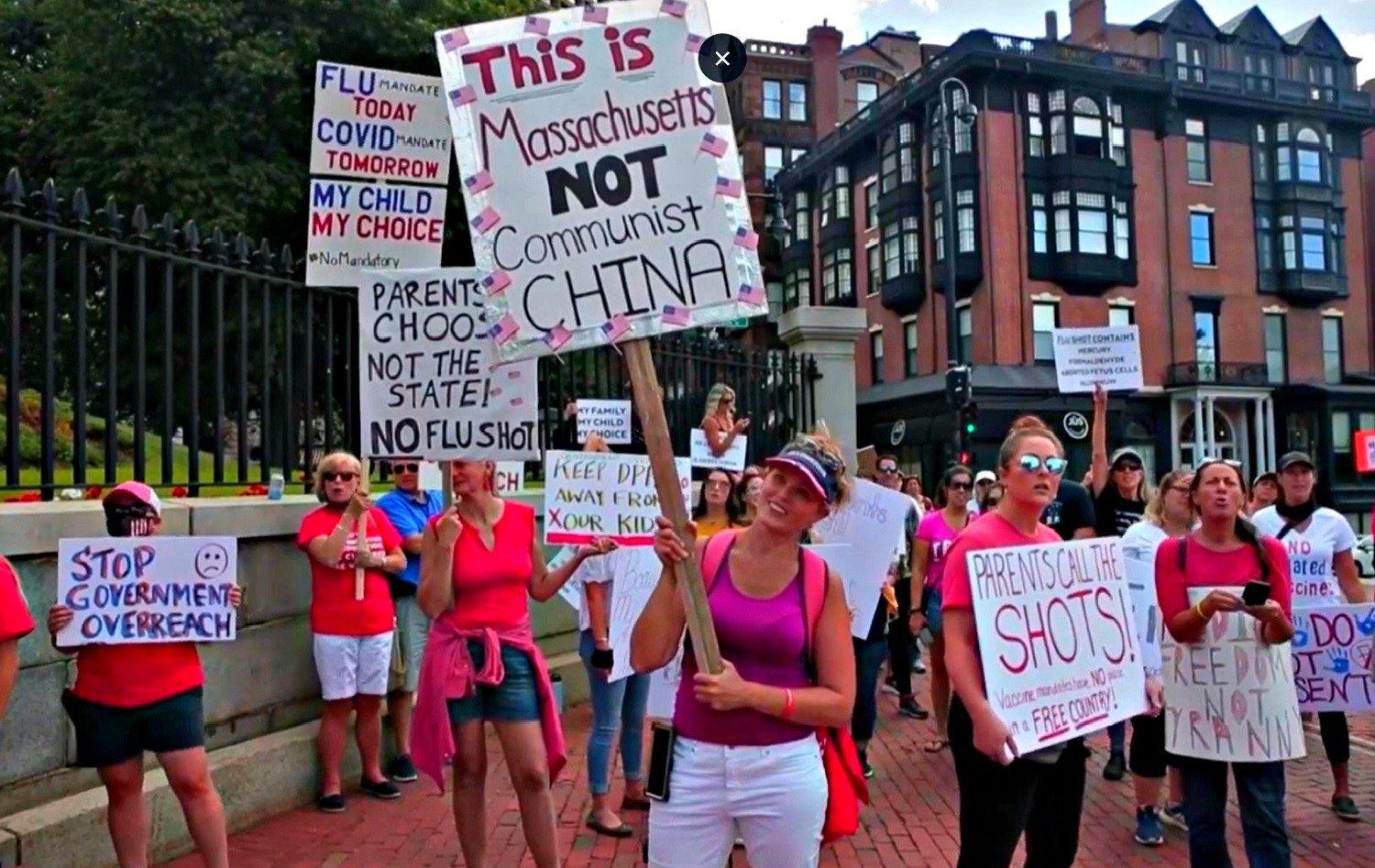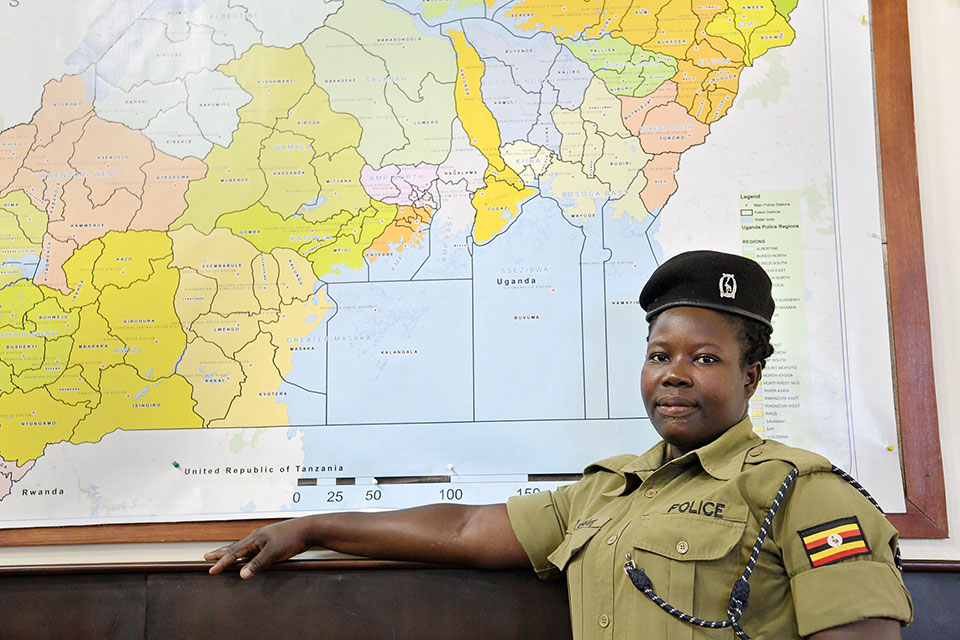With hope of true progress in emerging from the COVID-19 emergency finally on the horizon, ironically, an urgent challenge is to persuade citizens that vaccines can be trusted and that they are a vital part of the solution. Thoughtful and informed religious support can play essential roles in meeting that goal.
Religion has been a profound force in human history and, contrary to many facile assumptions, it remains so today. Even before humans left the cave and gave up hunter-gathering, before settled communities, in one form or another, faith shaped our destinies and our human development. Today among other reasons to take these institutions and forces seriously, survey after survey highlights that faith leaders are often the most trusted group among leaders, across many world regions.
We have fought over different gods and differ on many core values from the first inklings of civilization. In virtually all, however, from the most primitive to the most sophisticated, the central premise has been the belief in protecting communities of believers, whether from others or from unknown or misunderstood threats. These have been fundamental principles for millennia. Likewise, the most positive human values, exemplified in the Golden Rule, hold that in considering our roles and actions, we should do unto others as we would have them do unto us.
Fast forward to 2020: Frictions between different religions and other isms remain. But Covid-19 is “new”, both in its qualitative and quantitative aspects. This “new” is coupled with other factors, in particular, ease of transmission of a global virus affecting all corners of the world, science-based technological capability to limit its deadly effects, and an unprecedented ability to instantly communicate everywhere, for good or ill.
This sets the table to consider as an urgent matter what ecumenical and interreligious communities, individually and collectively, can do to work for the wellbeing of humanity as a common cause. Can they array themselves against those who, whether well-intentioned or otherwise, can hamper such efforts?
We are today at the dawn of possible vaccine protection against a killer virus that is airborne and requires no conduct other than breathing to infect millions. Conceivably during 2021 such preventive measures will be available to millions and hopefully billions of people. The rapid and cooperative effort that has gone into developing different and effective vaccines stands as something of a miracle.
Having the vaccines, however, is not the same as people taking them.
We know there will be individuals who will be difficult to reach, others who will be dubious about the reliability of any public health measure that comes with the backing of scientists, or who basically mistrust their government in whatever form. Still others will resist because their spiritual leaders counsel their congregants not to be vaccinated, invoking traditions, myths, customs, taboos, or other reasons to oppose, however strong the case for efficacy and safety may be.
Misinformation and rumor about the new coronavirus take different forms in different world regions. In some places, Pakistan for example, there are doubts as to whether COVID-19 even exists, while in Sri Lanka debate centers on the efficacy of traditional medicines versus any imported from elsewhere. In Russia, trust in government is so low that 59 percent of Russians say they have no intentions of getting a shot.
Issues on trust in vaccines and thus the perils of misinformation need to be addressed now, everywhere, proactively. That includes the United States, where concerted and strategic efforts are needed to hear and address fears. Certain groups of people at risk, for example, Black people who are three times more likely to contract the virus and die of COVID-19, are also the most reticent in getting vaccinated: fewer than half of Black Americans say they would get a coronavirus vaccine, compared with 63 percent of Hispanic people and 61 percent of White people, according to a recent Pew Research Center report. In Boston, following a thoughtful presentation of the importance of vaccines by the well-respected Dr. Anthony Fauci on a radio program hosted by a Black pastor, many listeners still said, in answer to a quick survey, that they were still hesitant.
As a result, the role of religious leaders can be critical in many if not most places. With the trust earned and their insights into the welfare, challenges, and lives of followers, they can tip the balance between trust and distrust, confidence and fear. Looking at the approaches that leaders are likely to take and the reasons that lie behind can be a decisive element in the next phases of the COVID-19 emergencies.
Some major religious leaders have spoken forcefully in support of both science and vaccination, specifically looking to vaccination as a central part of the solution. They draw on their traditions and teachings as they do so, as well as on their common sense and conviction that science is part of God’s creations.
Others have taken quite different stances, resulting in the active spread of contrary information. Let us look at a few of the major religions, seeking insights into where some find themselves supportive and others are conflicted in looking toward COVID vaccine help.
What is the Religious Support to be Expected from Major Religions
In the case of Islam, the Qur’ān and the traditions of Prophet Muhammed, oblige its followers to seek protection from illness, regardless of who is providing that protection. Respected Muslim leaders thus argue that they want a cure, or at least a vaccine, as badly as anyone else. Religious support should therefore be expected. The Prophet Muhammad said: “There is no disease that God has created for which He has not made a cure that is known by some people and unbeknownst to others, except death.” In fact, Muslims have a long history of contributing to medicine, mathematics, and science. The husband-and-wife team of scientists, founder of the German BioNTech firm that partnered with Pfizer to develop one of the leading Covid vaccines is of Turkish Muslim heritage.
Other Islamic leaders, however, have concerns around the safety and permissibility of vaccines that are being developed, and what they say can influence millions. For the 225 million Indonesian Muslims, the supreme authority on religious affairs is the Indonesian Ulama Council or the MUI. When the central MUI issued a fatwa in 2019 that suggested that the measles and rubella vaccine was forbidden, many conservative families across the archipelago refused to vaccinate.
A central problem is related to the halal status of the vaccine; in an emergency situation, halal certification in principle should not be an issue. The latest news is that the MUI together with the Indonesian Halal Certification Agency (BPJPH) has just finished a study on the halal status of a possible Covid vaccine and is expected to soon issue a fatwa that will allow (or not) Indonesians to be vaccinated.
In other settings (Nigeria, Pakistan), Muslim leaders came to fear that polio vaccination presented dangers though with careful dialogue most doubts were overcome. One turning point came in Nigeria when leaders vaccinated their children in public. Regarding COVID-19 and vaccine prospects, their position is still not confirmed.
In Catholicism, papal supremacy is the doctrine of the Catholic Church, meaning that the Pope, by reason of his office as Vicar of Christ, enjoys by divine institution, supreme, full, immediate, and universal power in the care of souls. Pope Francis has taken clear and positive stances on the COVID-19 vaccine, asserting that the world’s poorest people must have access to a coronavirus vaccine as soon as one becomes available:
“How sad it would be if access to a Covid-19 vaccine was made a priority for the richest. It would be sad if the vaccine became the property of such-and-such nation and not universal for everyone,”
That said, religious support is not a given. Individual Dioceses and Bishops can and have differing opinions and have opposed COVID vaccination for various reasons. In the United States, Bishop Joseph Brennan, head of the Diocese of Fresno, said in a video:
“I won’t be able to take a vaccine, brothers and sisters, and I encourage you not to, if it was developed with material from stem cells that were derived from a baby that was aborted, or material that was cast off from artificial insemination of a human embryo.”
It should be noted, however, that sharing such misinformation that leads to misguided action on the part of Church followers was quickly countered by the U.S. Conference of Catholic Bishops. A memo was distributed to all U.S. bishops stating that at least two of the vaccines currently on offer (Pfizer and Moderna) are considered ethically sound and can be taken. The memo also reminded bishops that church teaching allows for the use of vaccines whose origins are considered ethically unsound whenever alternatives are not available.
In Judaism, spiritual leaders are rabbis, though worldwide there is no equivalent to the Pope. There are various forms of Judaism from reform to conservative to orthodox. Great reliance is placed on the different interpretations by scholars and rabbis of the Torah. As a result, religious support can be complicated, but some voices ring loud and clear. Rabbi Hershel Schachter, who is a highly respected American Orthodox rabbi, a religious law authority and dean at Rabbi Isaac Elchanan Theological Seminary (RIETS), part of Yeshiva University (YU) in New York City, argues that when the government mandates vaccination, it is obligatory:
“If a democratic government ultimately legislates that a COVID-19 vaccination is safe for the public or specific populations, people must comply with this ruling. Jews who refuse to abide by government-mandated vaccination endanger all of society.”
He then notes that the measles outbreak in Hasidic communities in the United States with low vaccination rates and the subsequent public disgust with ultra-Orthodox Jews illustrates the potential for desecrating God’s name when Jews defy normative practice and legal requirements.
A rally 30 miles northwest of New York City, however, highlights that the anti-vaccine fervor is not only enduring but may be growing: Hundreds of ultra-Orthodox Jews packed a ballroom for a “vaccine symposium” with leaders of the anti-vaccination movement.
Looking Forward: The Need to Bridge the Divide
The outlook for the upcoming global COVID vaccination campaign is not rosy. Aside from the weaknesses in religious support noted above, many people are doubting vaccine efficacy and/or actively fighting vaccination with new strategies. In the United States, anti-vaccination activists have begun using the yellow Star of David that Nazis forced Jews to wear during World War II to promote their cause.
In both the United States and now increasingly in Europe, online anti-vaccination communities have now become pipelines for QAnon radicalization. In fact, far-right conspiracy theories have been seeping into anti-vaccination pages all over social media. This should be of concern to the religious community everywhere.
For the sake of each and every one of us and above all for vulnerable people suffering acutely during this crisis, we must explore how to bridge the divides between those who fear and doubt vaccines and those who support this path to COVID-19 solutions.
To do this, theologians, scientists, and public health specialists need to join with political and community leaders in a thoughtful conversation that builds the needed trust and respect in carefully vetted vaccines when they become available. There is no doubt that religious support can and will play a key role in this process.
That’s a path to create the widespread trust we desperately and sorely need if we are to beat this horrible common threat.
Editor’s Note: The opinions expressed here by Impakter.com columnists are their own, not those of Impakter.com. — In the Featured Photo: Hundreds protested in Boston against flu shots (31 August 2020) Source: Screenshot AFP video










